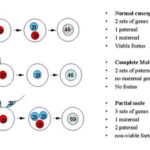
When you’re pregnant, your belly grows, but what people don’t often talk about is how it feels as it gets bigger.
At different times, your belly might feel soft or tight and hard. The thing is, there’s no one ‘normal’ way for it to feel. Pregnant bellies can be big or small and vary in firmness. Some women show their pregnancy sooner, while others don’t look obviously pregnant. How your belly looks and feels depends on things like your body shape, how much you weighed before pregnancy, and whether this is your first baby.
If your belly feels tight and heavy, it’s usually okay and nothing to worry about. Later in pregnancy, you might feel your stomach tighten now and then, which is called Braxton Hicks contractions. These are normal, and you might also feel brief moments of pressure or cramps. But if your belly doesn’t feel right to you, it’s a good idea to talk to your doctor or midwife.
In this article on PregnancyBoss, we will explore the causes of a tight belly during each trimester of pregnancy and when to seek medical attention.
Before we dive into the details, let’s go over some key takeaways:
Related: How to Deal with Pregnancy Constipation?
Key Takeaways
- A hard stomach during pregnancy can be attributed to various factors, including uterine contractions, fetal movement, and the growth of the baby.
- It is essential to differentiate between Braxton Hicks contractions (common and usually harmless) and true labor contractions (indicative of labor onset).
- Proper hydration, rest, and relaxation techniques can help alleviate a tight belly.
- If you experience severe or persistent discomfort, consult your healthcare provider to rule out any complications.
- Throughout this article, we will provide valuable insights into managing and understanding this common pregnancy symptom.
Related: Lower Belly Pooch? Let’s Learn to Breathe and Get Stronger
Understanding the Anatomy of the Belly During Pregnancy

During pregnancy, a woman’s body undergoes many changes, including changes to the anatomy of the belly. Understanding the anatomy of the belly during pregnancy can help women understand the changes that are happening to their bodies. Here are some key points about the anatomy of the belly during pregnancy:
Abdominal Muscles
During pregnancy, the growing baby stretches a woman’s abdominal muscles. The abdominal muscles stretch as the uterus expands with the pregnancy. The abdominal muscles keep the internal organs in place and support the spine.
Uterus
The uterus is a hollow, pear-shaped organ located in a woman’s lower stomach between the bladder and the rectum. During pregnancy, the uterus expands to accommodate the growing fetus. The uterus sheds its lining each month during menstruation, but during pregnancy, a fertilized egg becomes implanted in the uterus.
Placenta
The placenta is an organ shaped like a flat cake that only grows during pregnancy. The fetus takes in oxygen, nutrients, and other substances from the placenta and gets rid of carbon dioxide and other wastes. The placenta is connected to the fetus by the umbilical cord.
Umbilical Cord
The umbilical cord is a rope-like cord connecting the fetus to the placenta. The umbilical cord contains two arteries and a vein. It carries oxygen and nutrients to the fetus and waste products away from the fetus.
Round Ligaments
The round ligaments are located on either side of the uterus and connect the uterus to the groin. During pregnancy, the ligaments stretch as the uterus grows, which can cause sharp pain.
Digestive System
During pregnancy, the uterus expands and pushes on the digestive system to make room for the growing fetus. This can cause constipation and other digestive issues.
Changes in Belly Shape
The size and shape of a woman’s belly during pregnancy can vary depending on factors such as bone structure, muscle tone, number of previous pregnancies, height, and weight. The shape of a woman’s belly during pregnancy may not be what is seen in movies or online. Bowel distention, the result of constipation and excess gas, can also cause changes in belly shape.
Divarication of Abdominal Muscles
Divarication of abdominal muscles is a condition where the abdominal muscles separate during pregnancy. This can cause a bulge in the belly and can be uncomfortable. Women with this condition should speak to their doctor or midwife for advice on how to manage it.
Related: Pregnant Belly Painting: Unleashing Your Inner Artist
What is a Hard Stomach During Pregnancy?
A hard stomach during pregnancy is a sensation of tightness or hardness in the belly area. It can be a normal part of pregnancy, but it can also be a sign of a problem. The causes of a hard stomach during pregnancy can vary depending on the trimester. Some of the common causes of a hard stomach during pregnancy include mild muscle stretching, labor-related contractions, or a possible miscarriage.
Now, let’s talk about the causes of hard stomach during each trimester and ways to manage them.
Related: How To Get Rid Of Hanging Belly After C-Section?
The First Trimester: Preparing for Pregnancy
What Causes a Hard Belly in the First Trimester?
The first trimester of pregnancy is a crucial time when your body is busy preparing for the growth and development of your baby. During this period, a tight belly is less likely to be caused by the baby’s movements since they are still quite tiny. Instead, the sensation of a tight belly in the first trimester can often be attributed to:
- Uterine Changes: As your body begins to adapt to pregnancy, your uterus undergoes significant changes. It starts to expand to accommodate the growing embryo, which can result in mild uterine contractions. These contractions might contribute to the sensation of a hard belly.
- Hormonal Shifts: Pregnancy triggers hormonal changes, including an increase in progesterone levels. This hormone can relax the uterine muscles, making the uterus feel firmer.
- Bloating and Gas: Early pregnancy can also bring along bloating and gas, leading to a sensation of tightness in your abdomen. It’s not uncommon to feel like you’ve overindulged in a big meal, even if you’ve barely eaten.
- Potential Miscarriage: While isolated stomach tightening may not conclusively indicate a miscarriage, it is advisable to consult your healthcare provider. This is particularly important if the tightening becomes painful and if you encounter other potential signs of miscarriage, such as significant bleeding.
Managing a Tight Stomach in the First Trimester
Dealing with a tight stomach during the first trimester can be uncomfortable, but there are several strategies to help alleviate the discomfort:
- Stay Hydrated: Proper hydration is essential to prevent muscle cramps and maintain overall well-being.
- Frequent meals: Eating small, frequent meals, and avoiding gas-inducing foods can help ease the discomfort.
- Rest: Adequate rest and sleep are crucial during pregnancy. Fatigue can exacerbate the sensation of a hard stomach, so prioritize restful periods.
- Gentle Stretches: Performing gentle stretches can help relieve tension in the abdominal area.
- Breathing Exercises: Practicing deep breathing exercises can reduce stress and ease muscle tension.
- Consult Your Healthcare Provider: If you experience severe or persistent discomfort, it’s advisable to consult your healthcare provider to rule out any underlying issues.
Now, let’s explore what happens during the second trimester of pregnancy.
Related: 10 Best Pregnancy Support Belts: Supporting Your Belly and Back
The Second Trimester: The Growing Bump
What Causes a Hard Belly in the Second Trimester?
The second trimester is often referred to as the “honeymoon phase” of pregnancy, as many women experience increased energy and a growing baby bump. During this time, the sensation of a hard belly is typically linked to:
- Uterine Growth: As your baby continues to grow, your uterus expands accordingly. This expansion can lead to a firm and sometimes hard feeling in the abdominal region.
- Braxton Hicks Contractions: Braxton Hicks contractions, often referred to as “practice contractions,” become more noticeable in the second trimester. These contractions can create a sensation of tightness in the belly, which may feel hard.
- Preterm Labor: Abdominal tightening is not always a clear indication of preterm labor. However, if you notice contractions that become painful or observe other concerning symptoms, it’s essential to consult a healthcare professional promptly.
Managing a Hard Belly in the Second Trimester
The second trimester brings its own set of challenges, but there are ways to manage a hard belly during this period:
- Maintain Good Posture: Proper posture can help distribute the weight of your growing belly more evenly, reducing strain.
- Supportive Belly Bands: Consider using a maternity belly band for added support and comfort.
- Prenatal Yoga: Prenatal yoga classes can teach you specific exercises and stretches to alleviate tension in the abdominal area.
- Stay Active: Engaging in regular, moderate exercise can improve circulation and reduce discomfort.
- Monitor Contractions: Pay attention to the frequency and intensity of contractions. If you’re unsure whether they are Braxton Hicks or real contractions, consult your healthcare provider.
Now, let’s explore the third trimester and how a hard belly may manifest during this stage of pregnancy.
Related: Why I Am Experiencing Belly Button Pain Or Itching Or Soreness?
The Third Trimester: Preparing for Birth
What Causes a Hard Belly in the Third Trimester?
The third trimester is a time of great anticipation as you approach the final weeks of your pregnancy. The sensation of a hard belly in this trimester can often be attributed to:
- Uterine Contractions: As your body gets ready for labor, you may experience more frequent and intense uterine contractions. These contractions can create a sensation of tightness and hardness in the abdomen.
- Fetal Movement: Your baby’s movements may become more pronounced and vigorous during the third trimester. Strong kicks and stretches can contribute to the feeling of a hard belly.
- Engaging Baby: As your baby gets ready for birth, they may move lower into your pelvis. This engagement can make your belly feel harder, and you might notice a change in your baby’s position.
Managing a Hard Belly in the Third Trimester
Managing a hard belly in the third trimester is crucial as it can sometimes be a sign of impending labor. Here are some strategies to help you navigate this stage:
- Timing Contractions: Keep track of the duration and frequency of contractions. If they become regular and increasingly painful, it may be a sign of labor.
- Pelvic Floor Exercises: Practicing pelvic floor exercises can help strengthen the muscles in preparation for labor.
- Sleep Support: Invest in a pregnancy pillow to support your belly and provide a more comfortable sleeping position.
- Prepare for Labor: Take childbirth education classes to familiarize yourself with the signs of labor and coping techniques.
- Hydration and Nutrition: Continue to prioritize hydration and maintain a balanced diet to support your overall health.
Now that we’ve explored the causes and management of a hard belly in each trimester, let’s delve into when to worry about hard stomach during pregnancy.
Related: The Quick and Easy Way to Fix Coning During Pregnancy
When to Worry about Hard Stomach While Pregnant?

When to worry about a hard belly during pregnancy:
- Sharp pain, bleeding, or pain that doesn’t stop after 30 to 60 minutes
- Contractions that become regular and increase in intensity
- Decreased fetal movement
- Abdominal tightening can be a sign of the uterus stretching, gas, or pregnancy loss, depending on the stage of pregnancy.
- If the tightening is more constant and doesn’t let up, it could be preterm or full-term labor3.
- A hard belly in the first trimester can also be a sign of a miscarriage.
- A hard abdomen should prompt the expectant mother to see her gynecologist, especially if the symptoms occur before 30 weeks of pregnancy.
Related: Labor-Inducing Moves: Myth Busted and Highly Recommended
Frequently Asked Questions (FAQs)
Is a Hard Belly a Cause for Concern?
In most cases, a hard belly during pregnancy is a normal and expected symptom. However, if you experience severe pain, vaginal bleeding, regular contractions or decreased fetal movement, contact your healthcare provider immediately:
Can I Use Heat or Cold Packs to Relieve a Hard Belly?
It’s generally safe to use a warm compress or heating pad on a hard belly for short periods, but avoid applying it directly to the abdomen for an extended time. Cold packs can also provide relief. Always check with your healthcare provider before using heat or cold therapy during pregnancy.
Can Stress Cause a Hard Belly?
Stress can contribute to muscle tension, which may exacerbate the sensation of a hard belly. Engaging in relaxation techniques such as deep breathing, meditation, or prenatal yoga can help reduce stress levels and alleviate abdominal discomfort.
How can I differentiate between a hard belly and baby movements?
Pay attention to the rhythmic and repetitive nature of baby movements. A hard belly is more constant.
What if my belly feels hard, but I haven’t felt the baby move yet?
Don’t worry; it’s normal for baby movements to be sporadic at this stage. Consult your healthcare provider if you’re concerned.
Are Braxton Hicks contractions painful?
They can be uncomfortable but are usually not as painful or regular as true labor contractions.
How can I differentiate between Braxton Hicks contractions and real labor contractions?
Braxton Hicks contractions tend to be irregular and less intense. Real labor contractions are consistent and grow stronger over time.
When should I contact my healthcare provider about contractions?
If you’re unsure about the type of contractions you’re experiencing or if they become regular and increasingly painful, call your provider.
Can a hard belly indicate labor is imminent?
While it can be a sign, it’s not definitive. Many women experience hard bellies for weeks before labor begins.
What can I do to ease the discomfort of Braxton Hicks contractions?
Changing positions, deep breathing, and staying hydrated can help. If they persist or become painful, consult your healthcare provider.
Is it normal for my belly to feel harder as the due date approaches?
Yes, as your baby moves lower and your body prepares for labor, your belly may feel firmer.
Tables with Relevant Facts
| Trimester | Common Causes of Hard Stomach |
|---|---|
| First | Uterine changes, hormonal shifts |
| Second | Uterine growth, Braxton Hicks contractions |
| Third | Uterine contractions, fetal movement |
| Tips for Managing a Hard Stomach |
|---|
| Stay hydrated |
| Rest and prioritize sleep |
| Gentle stretches and breathing exercises |
| Monitor contractions and seek medical advice |
Ease Abdominal Discomfort with This Support Band

Conclusion
In conclusion, experiencing a hard stomach during pregnancy is a common occurrence that can be attributed to various factors. Understanding the causes and practicing proper management techniques can help ensure a more comfortable and enjoyable pregnancy journey. Remember that while a hard belly is often normal, it’s crucial to seek medical advice if you have any concerns or experience severe discomfort. Your healthcare provider is your best resource for ensuring a healthy and happy pregnancy.
Disclaimer: This article is for informational purposes only and should not be considered a substitute for professional medical advice. Always consult with your healthcare provider for personalized guidance during pregnancy.











